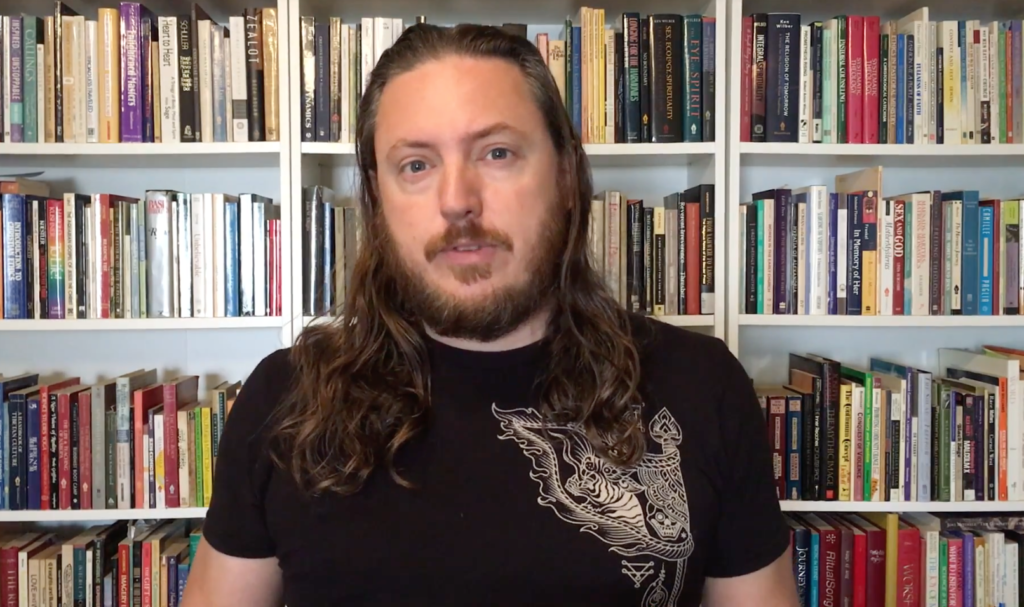An interventionist God? and Jesus’ Resurrection

Watch Joran’s Answer Below:
Question & Answer
Q: By Kevin
I believe in God but not an interventionist God. There is too much suffering in this world both amongst believers and non-believers. If we study cosmology in the micro- and macro-universes, God must surely be quite a different being (or non-being) if He is in charge of all the things going on in His Universe. Indeed one cannot blame people for not believing in God as He is presented in many of the belief systems we have on this earth.
On the other hand, I do not begrudge those of my children who are fundamentalists; better that than being non-believers and not following the teachings of Jesus.
Is it not possible that Jesus did not die on the Cross, but merely passed out, coming to in the cave and making those appearances described in the New Testament? There are many instances of such “miraculous” recovery even to the present day and many of His miracles can be explained scientifically.
A: By Joran Slane Oppelt
Dear Kevin,
Thank you so much for writing.
No, we can’t blame people for not believing in God, especially those versions of God that don’t align with our beliefs or values — a God that is irrational, wrathful, vengeful, male, white, etc. But thousands of years ago, we placed God on a “throne” because that’s where our lords and rulers held the world in their hands, able to control forces like war, hunger and suffering as well as peace, prosperity and community. We now have more direct and personal control over these forces in our life, and along with it has come a different conception of God — a responsibility to remake God in our own image, not the image of a king, emperor or avatar. When someone is using old language or an old map, we tend to question why they haven’t caught up with the times, rather than challenge ourselves to draw new maps together.
I’m a pluralist, so I’m not sure I agree with the statement “better [to be a fundamentalist] than [to be] non-believers and not following the teachings of Jesus.”
I think that the aims of loving God (and one another) can be found in many of the world’s faith traditions. I see it in the worship of “one God” and adherence to religious law found in Judaism and Islam. I see it in the selfless service of the Sikhs. I see it in the social justice focus of the Unitarian Universalists and the Baha’is. I see it in the mysticism of the Sufis and Jewish Renewal. I see it in the metaphysics of Unity and Science of Mind. I see it in the eco-spirituality and “creation care” of many Christian communities (Episcopalian, Methodist, UCC, etc.). I think there are much “better” alternatives than to be a fundamentalist of any religion.
For the Christian, the question is, “How are suffering and hope encountered and identified in Christ?” Christ needs to remain the gateway to understanding our place in this world. He is the archetype and the larger idea. He is the mutation of consciousness that we have been given in order to grow beyond ourselves.
Pray with Him and keep me posted.
The second part of your question is a little easier for me to address.
Are there modern-day cases of people being buried alive or returning to life? Sure.
Is it possible to attempt to scientifically explain an event like the resurrection? Sure. But, without any 2,000-year-old evidence or eyewitness accounts, it remains conjecture.
Are there people who claim that Elvis and Tupac Shakur are still alive and living in an apartment somewhere? Yes. Those people are delusional and/or they have not properly been shown how to grieve.
Regardless of its historicity, by attempting to explain this event away, we rob the event of its meaning on many levels, including the impact it has on our very souls.
Mythically, we rob Jesus of his ability to “overcome the world.” The primacy of the resurrection and the days that follow are pivotal in this story. Jesus “lived on” in the hearts and visions of those that knew him. That is where we must still look for him today.
Metaphysically, we rob ourselves of the ability to achieve salvation through Christ. This can happen once-in-a-lifetime or it can happen daily. But we must be able to surrender ourselves and give over all of our pain and suffering and “sin” to Jesus in his ninth and final hour. We must commit ourselves to entering the dark night of the soul — the via negativa — with Jesus at his crucifixion. Because on the other side of that is the via creativa. On the other side of that is something new in ourselves, something resurrected and reborn.
And, we rob the women who witnessed the resurrection of their stories. Why were these women the first to see (and hear) Jesus after his death? Why were they chosen? What makes them special? What did they have in common? What is the feminine experience of this witnessing and this resurrection? There is a social significance to the shared vision of these women who were the first to enter into the fulfillment of the Kingdom of God. And there’s been enough robbing women of their stories throughout history.
These are great questions. Keep them coming and thank you for keeping the conversation moving forward.
Sincerely,
~ Joran Slane Oppelt
This Q&A was originally published on Progressing Spirit – As a member of this online community, you’ll receive insightful weekly essays, access to all of the essay archives (including all of Bishop John Shelby Spong), and answers to your questions in our free weekly Q&A. Click here to see free sample essays.
About the Author
Joran Slane Oppelt is an international speaker, author, interfaith minister and award-winning producer and singer/songwriter. He is the owner and founder of the Metta Center of St. Petersburg and Integral Church – an interfaith and interspiritual organization in Tampa Bay. Joran is the author of Integral Church: A Handbook for New Spiritual Communities, Sentences, The Mountain and the Snow and co-author of Order of the Sacred Earth (with Matthew Fox) and Transform Your Life: Expert Advice, Practical Tools, and Personal Stories. He currently serves on the board of Creation Spirituality Communities and has spoken around the world about spirituality and the innovation of religion.


